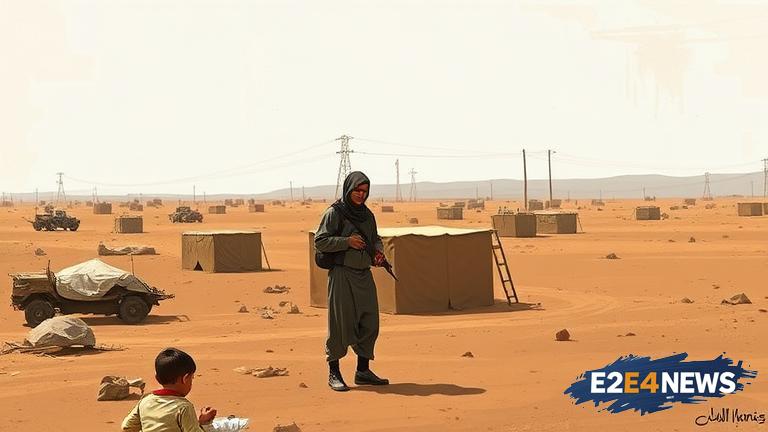Doctors Without Borders, a renowned international humanitarian organization, has released a shocking report exposing a campaign of starvation in conflict zones. The report highlights the devastating consequences of using starvation as a weapon of war, which has resulted in the deaths of countless civilians, including women and children. The organization has witnessed firsthand the horrific conditions in which people are being forced to live, with limited access to food, water, and medical care. In many cases, the report notes, starvation is being used as a deliberate tactic to weaken and intimidate civilian populations. This inhumane strategy has been employed in various conflict zones, including Yemen, Syria, and South Sudan. The report emphasizes that the use of starvation as a weapon of war is a blatant violation of international humanitarian law. Doctors Without Borders has called on the international community to take immediate action to address this crisis and to hold those responsible accountable. The organization has also urged governments and other stakeholders to provide urgent humanitarian assistance to affected populations. The report highlights the need for a comprehensive and coordinated response to address the root causes of starvation in conflict zones. This includes ensuring access to food, water, and medical care, as well as protecting civilians from violence and exploitation. The use of starvation as a weapon of war has severe and long-lasting consequences, including malnutrition, disease, and psychological trauma. The report notes that the effects of starvation can be seen in the alarming rates of malnutrition among children, which can have irreversible consequences on their physical and mental development. Furthermore, the report emphasizes that the use of starvation as a weapon of war is not only a humanitarian crisis but also a threat to global security and stability. The international community has a moral and legal obligation to act decisively to prevent the use of starvation as a weapon of war. Doctors Without Borders has reiterated its commitment to providing humanitarian assistance to affected populations and to advocating for their rights and dignity. The organization has also called on governments and other stakeholders to support its efforts to address the crisis of starvation in conflict zones. In addition, the report highlights the need for increased funding and resources to support humanitarian efforts in conflict zones. The international community must also work to address the root causes of conflict and to promote sustainable peace and development. The report concludes by emphasizing the urgent need for action to address the crisis of starvation in conflict zones and to hold those responsible accountable. The use of starvation as a weapon of war is a stain on humanity’s conscience, and it is our collective responsibility to act to prevent it. The report serves as a wake-up call to the international community to take immediate and decisive action to address this crisis. By working together, we can prevent the use of starvation as a weapon of war and ensure that civilians are protected from violence and exploitation. The report is a powerful reminder of the need for a comprehensive and coordinated response to address the crisis of starvation in conflict zones. It is our moral and legal obligation to act to prevent the use of starvation as a weapon of war and to promote peace, stability, and development in conflict-affected areas.
